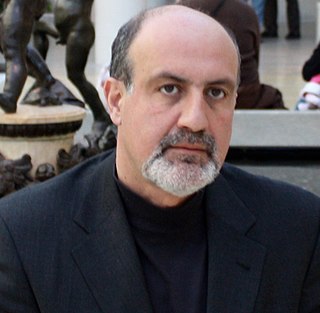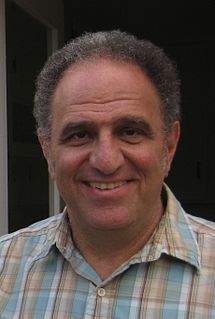Related Research Articles
Engineering statistics combines engineering and statistics using scientific methods for analyzing data. Engineering statistics involves data concerning manufacturing processes such as: component dimensions, tolerances, type of material, and fabrication process control. There are many methods used in engineering analysis and they are often displayed as histograms to give a visual of the data as opposed to being just numerical. Examples of methods are:
- Design of Experiments (DOE) is a methodology for formulating scientific and engineering problems using statistical models. The protocol specifies a randomization procedure for the experiment and specifies the primary data-analysis, particularly in hypothesis testing. In a secondary analysis, the statistical analyst further examines the data to suggest other questions and to help plan future experiments. In engineering applications, the goal is often to optimize a process or product, rather than to subject a scientific hypothesis to test of its predictive adequacy. The use of optimal designs reduces the cost of experimentation.
- Quality control and process control use statistics as a tool to manage conformance to specifications of manufacturing processes and their products.
- Time and methods engineering use statistics to study repetitive operations in manufacturing in order to set standards and find optimum manufacturing procedures.
- Reliability engineering which measures the ability of a system to perform for its intended function and has tools for improving performance.
- Probabilistic design involving the use of probability in product and system design
- System identification uses statistical methods to build mathematical models of dynamical systems from measured data. System identification also includes the optimal design of experiments for efficiently generating informative data for fitting such models.

Nassim Nicholas Taleb is a Lebanese-American essayist, mathematical statistician, former option trader, risk analyst, and aphorist whose work concerns problems of randomness, probability, and uncertainty. The Sunday Times called his 2007 book The Black Swan one of the 12 most influential books since World War II.

Sir David Roxbee Cox was a British statistician and educator. His wide-ranging contributions to the field of statistics included introducing logistic regression, the proportional hazards model and the Cox process, a point process named after him.
Peter Whittle was a mathematician and statistician from New Zealand, working in the fields of stochastic nets, optimal control, time series analysis, stochastic optimisation and stochastic dynamics. From 1967 to 1994, he was the Churchill Professor of Mathematics for Operational Research at the University of Cambridge.

Albert Nikolayevich Shiryaev is a Soviet and Russian mathematician. He is known for his work in probability theory, statistics and financial mathematics.
Sir John Frank Charles Kingman is a British mathematician. He served as N. M. Rothschild and Sons Professor of Mathematical Sciences and Director of the Isaac Newton Institute at the University of Cambridge from 2001 until 2006, when he was succeeded by David Wallace. He is known for developing the mathematics of the Coalescent theory, a theoretical model of inheritance, which is fundamental to modern population genetics.
Brian David Ripley FRSE is a British statistician. From 1990, he was professor of applied statistics at the University of Oxford and is also a professorial fellow at St Peter's College. He retired August 2014 due to ill health.
The Guy Medals are awarded by the Royal Statistical Society in three categories; Gold, Silver and Bronze. The Silver and Bronze medals are awarded annually. The Gold Medal was awarded every three years between 1987 and 2011, but is awarded biennially as of 2019. They are named after William Guy.

Bradley Efron is an American statistician. Efron has been president of the American Statistical Association (2004) and of the Institute of Mathematical Statistics (1987–1988). He is a past editor of the Journal of the American Statistical Association, and he is the founding editor of the Annals of Applied Statistics. Efron is also the recipient of many awards.
Lloyd Nicholas Trefethen is an American mathematician, professor of numerical analysis and head of the Numerical Analysis Group at the Mathematical Institute, University of Oxford.

Neil Shephard, FBA, is an econometrician, currently Frank B. Baird Jr., Professor of Science in the Department of Economics and the Department of Statistics at Harvard University.
Nicholas John Higham FRS is a British numerical analyst. He is Royal Society Research Professor and Richardson Professor of Applied Mathematics in the Department of Mathematics at the University of Manchester.

Douglas Graham Altman FMedSci was an English statistician best known for his work on improving the reliability and reporting of medical research and for highly cited papers on statistical methodology. He was professor of statistics in medicine at the University of Oxford, founder and Director of Centre for Statistics in Medicine and Cancer Research UK Medical Statistics Group, and co-founder of the international Equator Network for health research reliability.
The Journal of the Royal Statistical Society is a peer-reviewed scientific journal of statistics. It comprises three series and is published by Wiley for the Royal Statistical Society.
Michael John Romer Healy was a British statistician known for his contributions to statistical computing, auxology, laboratory statistics and quality control, and methods for analysing longitudinal data, among other areas. He was professor of medical statistics at the London School of Hygiene and Tropical Medicine from 1977 until his retirement. The Royal Statistical Society awarded him the Guy Medal in Silver in 1979 and Gold in 1999, and he also acted as chairman of its medical section. He was the author or co-author of three books and over 200 scientific papers.
Gareth Owen Roberts FRS is a statistician and applied probabilist. He is Professor of Statistics in the Department of Statistics and Director of the Centre for Research in Statistical Methodology (CRiSM) at the University of Warwick. He is an established authority on the stability of Markov chains, especially applied to Markov chain Monte Carlo (MCMC) theory methodology for a wide range of latent statistical models with applications in spatial statistics, infectious disease epidemiology and finance.

Robert Tibshirani is a professor in the Departments of Statistics and Biomedical Data Science at Stanford University. He was a professor at the University of Toronto from 1985 to 1998. In his work, he develops statistical tools for the analysis of complex datasets, most recently in genomics and proteomics.

Trevor John Hastie is an American statistician and computer scientist. He is currently serving as the John A. Overdeck Professor of Mathematical Sciences and Professor of Statistics at Stanford University. Hastie is known for his contributions to applied statistics, especially in the field of machine learning, data mining, and bioinformatics. He has authored several popular books in statistical learning, including The Elements of Statistical Learning: Data Mining, Inference, and Prediction. Hastie has been listed as an ISI Highly Cited Author in Mathematics by the ISI Web of Knowledge.
Roger Mead was an English statistician and Emeritus Professor of Applied Statistics at the University of Reading. He is known for his paper with John Nelder on the widely-used Nelder–Mead method and for his work on statistical methods for agriculture and the design of experiments. He was made an Honorary Life Member of the International Biometric Society in 2014.

Claudia Klüppelberg is a German mathematical statistician and applied probability theorist, known for her work in risk assessment and statistical finance. She is a professor emerita of mathematical statistics at the Technical University of Munich.
References
- ↑ Applied Statistics at the University of Reading. ISBN 0704911272.
- ↑ Curnow, Robert N. (2006). Applied statistics at the University of Reading: the first forty years. University of Reading. ISBN 978-0-7049-1127-7.
- ↑ "Robert Nicholas Curnow University of Reading Department of Mathematics and Statistics Ph.D."
- ↑ Reading, The University of. "Items where Author is "Curnow, Professor Robert" - CentAUR". centaur.reading.ac.uk. Retrieved August 1, 2022.
- ↑ Curnow, Robert N. (1999). "Unfathomable Nature and Government Policy". Journal of the Royal Statistical Society, Series D (The Statistician). 48 (4): 463–476. doi:10.1111/1467-9884.00205. ISSN 0039-0526.